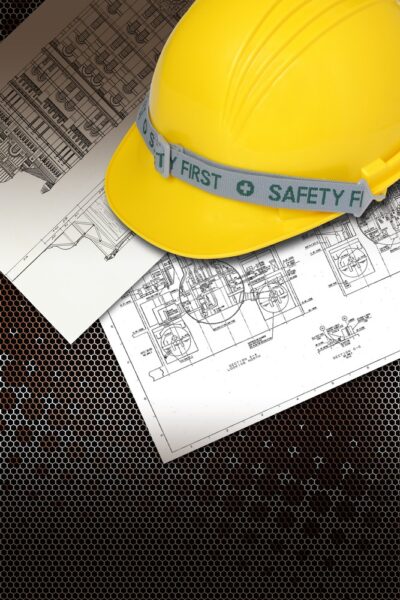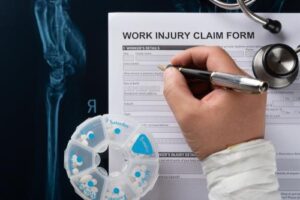
Many individuals are confused about the definition of “no-fault” in terms of workers’ compensation cases. If you suffered injuries during a workplace accident, then you may have seen workers’ compensation described as a “no-fault” system. Reviewing this topic will help you become more knowledgeable about workers’ compensation cases and how you can enforce your legal rights with the help of an Atlanta workers’ compensation lawyer.
Employer Liability and Workplace Accidents
When workers’ compensation is described as a no-fault system, this means that liability is not typically a factor in workers’ compensation cases. It does not matter who is at fault for the workplace injury. The question of liability will not influence the benefits the employee will receive. However, under specific circumstances, liability will be a factor in workers’ compensation cases.
Employers are essentially shielded from liability in workers’ compensation cases. A worker who suffers serious bodily injury at their place of employment cannot file a civil lawsuit against their employer for negligence. An injured employee does not need to establish liability to obtain benefits.
In some cases, an employer may be liable for an employee’s injuries if the accident was due to the misconduct of the employer or gross negligence. An employer may have intentionally caused harm to an employee, and this would give rise to a negligence claim the employee could assert against the employer. You will need to speak to a skilled attorney to determine if you are eligible for workers’ compensation.
Get the strong arm
Simplifying the Workers’ Compensation Claims Process
Workers’ compensation cases can be complex, but the system as a whole was designed to make submitting claims simple and easy. Employees do not have to worry about waiting long periods of time to receive their workers’ compensation benefits. By not needing to establish the liability of the employer, the employer can file an incident report to the workers’ compensation carrier.
In this manner, workers’ compensation benefits are comparable to an insurance policy in the speed at which employees can begin receiving benefits. These benefits will help employees recover from their injuries and return to work.
The Responsibility of the Employer in Workers’ Compensation Cases
The responsibility of providing workers’ compensation benefits to the employee is placed on the employer. It does not matter if the employer was negligent or not. The employee may have partially caused the accident in which they suffered injuries, but the employee must still receive workers’ compensation benefits in accordance with the law.
The Benefits Recipients Are Entitled to Under Workers’ Compensation
Employees who receive benefits under workers’ compensation are entitled to lost earnings, rehabilitation costs, and medical bills. Also, workers’ compensation benefits are provided no matter which party is at fault. This guarantees that employees will be able to access the medical treatment they need to recover from their injuries.
Helping Injured Employees Receiver Workers’ Compensation Benefits Sooner
Workers’ compensation beneficiaries can receive their benefits sooner if they do not have to establish the liability of the employer. The no-fault system ensures that employees will not have to wait for a civil lawsuit to be resolved before they receive their workers’ compensation benefits. Therefore, employees need to understand what they are entitled to under the workers’ compensation system.
Creating a Strong Workers’ Compensation Case
Although workers’ compensation is a no-fault system, insurance companies will use different techniques to deny workers the benefits they are entitled to receive under the law. It is necessary to establish a strong case as soon as you suffer a workplace injury. The following steps will help you create a strong workers’ compensation case:
- Seek medical treatment as soon as possible
- Provide information about the injury to your employer within seventy-two hours
- Take photographs and videos of your injuries
- Keep a record of the time you miss from work
- Follow every requirement contained in your treatment plan
Taking these steps will help you establish an effective workers’ compensation claim at the outset. You do not want to delay seeking medical treatment for your injuries. The more prepared you are to submit documentation regarding your injuries, the sooner you will be receiving workers’ compensation benefits.
Temporary Partial Disability
Temporary partial disability benefits may be available to you if you cannot work for longer than seven days. Also, you may qualify for temporary partial disability if you can return to work, but you earn less due to the nature of your injuries. The payments you receive will likely be based on the average wage you earned during the year before the workplace incident.
You may not be able to return to work at all, and if this is the case, then the benefits payments you receive will be equal to two-thirds of the wage you received before the incident multiplied by a unique disability rating. Essentially, a disability rating is a specific percentage a medical doctor assigns to patients to provide information about how much an injury affects the patient’s ability to work and function in everyday life. It is helpful to speak to a workers’ compensation attorney if you want to learn more about how to calculate the benefits you may receive if you do qualify for temporary partial disability.
Contact John Foy & Associates Today to Schedule a Free Consultation
The attorneys at John Foy & Associates are here to help you learn more about workers’ compensation laws. You do not have to be afraid to assert your legal rights, and you should not fear that your employer will retaliate against you for reporting a workplace injury. If you are searching for assistance with your workers’ compensation claim, then contact us today to schedule a free consultation.
Dealing with a workplace injury is stressful, and it can be difficult not knowing the total benefits you will receive under workers’ compensation. If you have questions about your legal rights, then reach out to us today so you do not continue to worry about the benefits to which you may be entitled. Our attorneys have years of experience helping clients with many different aspects of workers’ compensation law.
404-400-4000 or complete a Free Case Evaluation form





